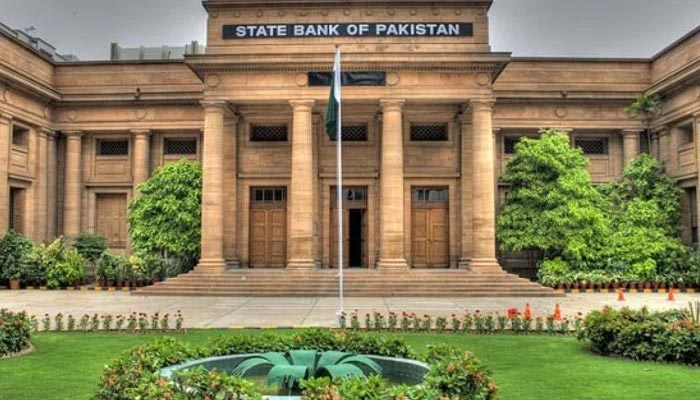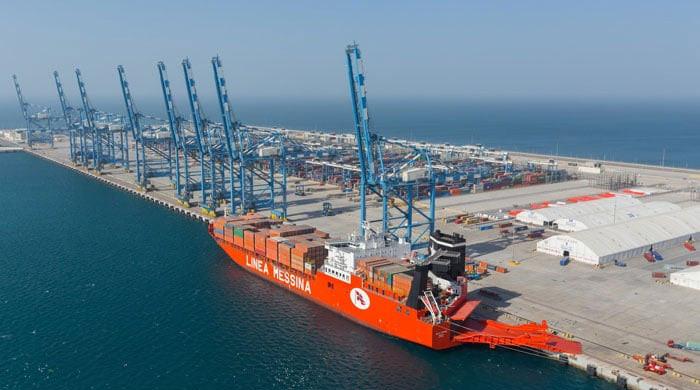SBP to roll back import restrictions from next week
State Bank directs dealers to process requests, keeping in view customers’ risk profile, liquidity conditions
December 27, 2022

- State Bank directs dealers to prioritise imports under essential, energy imports, etc.
- Central bank urges dealers to keep in view liquidity conditions.
- SBP chief already hinted at this decision earlier this month.
In a major relief for industries and businesses, the State Bank of Pakistan (SBP) Tuesday notified its decision to withdraw the restrictions placed on imports with effect from January 2, 2023.
“Attention of the authorised dealers (ADs) is invited to EPD Circular letter No.9 of May 20, 2022 and Circular letter No. 11 of July 5, 2022 wherein ADs were required to seek prior permission from Foreign Exchange Operations Department SBP-BSC before initiating any import transaction pertaining to HS Code Chapter 84, 85 and certain items of Chapter 87,” according to an official statement.
“It has now been decided to withdraw the above instructions with effect from January 2, 2023. Consequently, requests for import transactions already submitted to SBP-BSC pertaining to above referred HS Codes stand returned to the ADs for appropriate disposal at their end.”
However, the central bank said that dealers may prioritise or facilitate imports under essential imports, energy imports, imports by export-oriented industry, imports for agriculture inputs, deferred payment/self-funded imports and imports for export-oriented projects near completion.
Essential imports
Imports related to essential sectors such as food (wheat, edible oil, etc) and pharmaceutical (raw material, life-saving/essential medicines, surgical instruments including stents)
Energy imports
Imports related to petroleum group (oil and gas) and coal (for power projects based upon merit order of Ministry of Energy).
Imports by export-oriented industry
Imports, especially of raw materials, input goods and spare parts that are used by export-oriented industries.
Imports for agriculture inputs
Import of items required as inputs for agriculture such as seeds, fertilisers and pesticides.
Deferred payment and self-funded imports
- Imports on a deferred payment basis, preferably from parents/sister concerns of the importers, beyond 365 days, from shipment date.
- Imports funded by foreign exchange available with the importers raised through equity or project loan/import loan from abroad, in accordance with the applicable Foreign Exchange Regulations.
Import for export-oriented projects near completion
Import of plant and machinery for export-oriented projects near completion where at least 75% of the project’s plant and machinery has already been imported.
The central bank further directed ADs to actively engage with all their customers to process their requests, keeping in view the customers’ risk profile and liquidity conditions prevailing in the foreign exchange market.
It advised the authorised dealers to bring the above instructions to the notice of all their constituents.
'From next year, SBP to bring ease to businesses'
Earlier this month, SBP Governor Jameel Ahmad recognised that administrative measures on imports must not be continued and need to relax gradually.
In his podcast he said from next year, the bank may review the restrictions and bring more ease to the businesses.
The SBP placed restrictions on imports these restrictions covered about 15% of Pakistan’s total imports.
Thereafter, SBP in coordination with the government identified eight to 10 business sectors which were genuinely affected and needed relief. They were allowed to import 50% to 60% of their monthly average import payments made from January to June 2022.
Similarly, some importers reported cases of demurrages where letters of credit for imports were opened before the issuance of SBP restrictions. The central bank in coordination with commercial banks resolved the issue and the backlog of payments were cleared.
Furthermore, some relaxations were also given after consultation with industry, he said, adding that consequently, less than 10% of the country’s imports are currently subject to administrative controls
It is pertinent to mention that foreign exchange reserves held by the SBP fell another $584 million to a critical level of $6.12 billion, data released on Thursday showed. This is the lowest level of SBP-held reserves since April 2014.
The low level of reserves was the reason behind the SBP placing restrictions earlier this year, much to the dismay of several importers and businesses in Pakistan that cited these curbs behind shutting down or scaling back operations.











